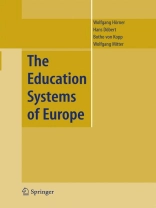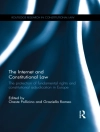Education is a paradoxical phenomenon. On the one hand it is universal, as since the period of Enlightenment, it has been declared universal good for everybody. Mo- over, we learnt by historical research following the ideas of world system theory, that since this time as far as its main structures are concerned (compulsory state education given by professional teachers in classrooms…) it took even universal traits. However, on the other hand, the fact, that education became state education – organised or at least controlled by the state – was the beginning of another tradition line: education in the form of state organised educational institutions became a means of creating national identity. Universal inclusion as for the light of reason, shining for everybody is opposed to more or less nationalist exclusion (of all the others) shaping the feature of a particular nation state, with a particular educational system. This fundamental dialectical tension between the universal and the particular, was one to the important motives to make this handbook. One of the central issues of the country studies is precisely to display the relationship between universal v- ues and the search for national identity. Another motive is given by the European dimension of the handbook.
Tabela de Conteúdo
Albania.- Andorra.- Armenia.- Austria.- Azerbaijan.- Belarus.- Belgium.- Bosnia and Herzegovina.- Bulgaria.- Czech Republic.- Croatia.- Cyprus.- Denmark.- Estonia.- Faroe Islands.- Finland.- France.- Georgia.- Germany.- Greece.- Hungary.- Iceland.- Ireland.- Italy.- Kosovo (under UN-Administration).- Latvia.- Liechtenstein.- Lithuania.- Luxembourg.- Malta.- Macedonia.- Moldova.- Monaco.- Montenegro.- Netherlands.- Norway.- Poland.- Portugal.- Romania.- Russian Federation.- San Marino.- Serbia.- Slovak Republic.- Slovenia.- Spain.- Sweden.- Switzerland.- TURKEY.- Ukraine.- United Kingdom.- Education in Europe: The Way Ahead.- Education Systems of Europe: Statistical profile.












